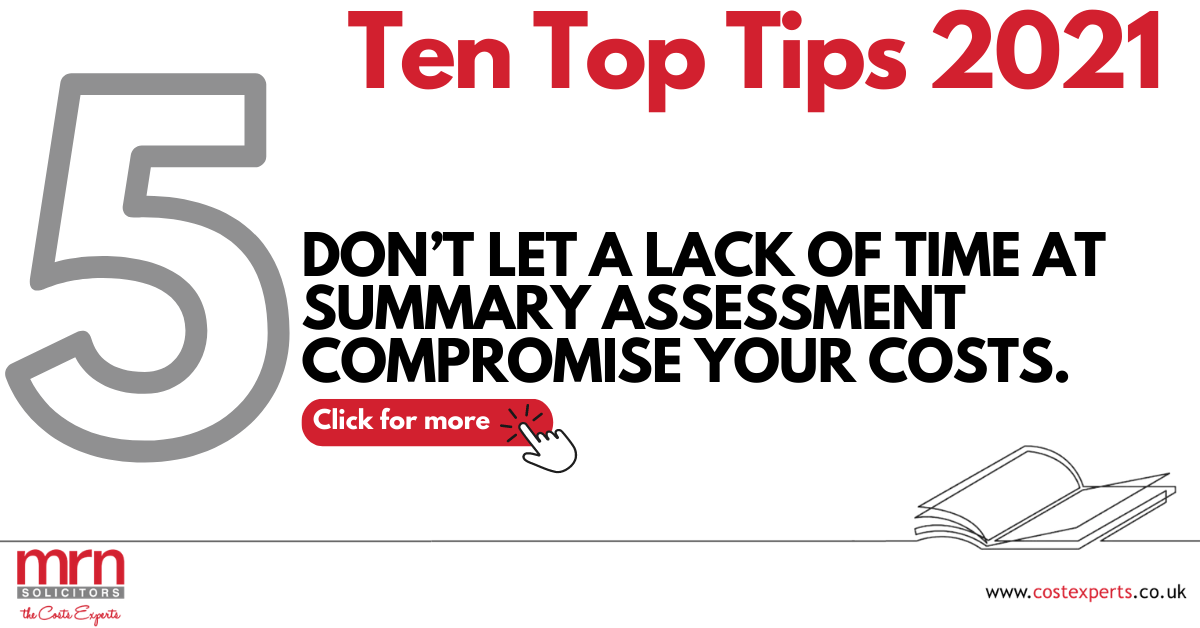Don’t let a lack of time at Summary Assessment compromise your costs
In the case of Cohen v Fine & Ors [2020] EWHC 3278 (Ch) we were given an insight into the procedural aspects of summary assessment including how these should be conducted by the Court. The receiving party in this case appealed against the original decision awarding £27,000 on summary assessment. As a result, a “line by line” assessment of the receiving party’s costs resulted in an award of £35,703.00 which was allowed by HHJ Hodge QC who presided over the appeal.
Guidance was provided on how future costs assessments could be conducted in cases where summary assessment was applicable. The first thing that the Court should establish from the paying party is how many, and which, individual elements of the statement of costs are subject to challenge. If there is simply no time available to undertake an item by item consideration of those elements, the Court should make this clear; and it should ask whether all relevant parties expressly consent to the Court adopting a broad brush, and global, approach to these disputed items, without minutely examining them in any detail. If such consent is forthcoming from all relevant parties, it should be expressly recorded in the Court’s order. If no such consent is forthcoming from all relevant parties, then the Court has the options of: (1) ordering that the assessment (and, if not previously determined, the incidence and/or the basis) of the costs of the relevant hearing will be determined on paper following upon an exchange of short, sequential written submissions from the relevant parties (as O’Farrell J did in Ohpen Operations); (2) re-listing the matter for a summary assessment of the costs; or (3) directing that the receiving party’s costs should be the subject of a detailed assessment. If a detailed assessment is ordered, the Court should exercise its power under CPR 44.2 (8) to order the paying party to pay a reasonable sum on account of costs unless there is good reason not to do so. As such this salutary power should always be borne firmly in mind as an alternative to a rushed, and procedurally improper, summary assessment.


